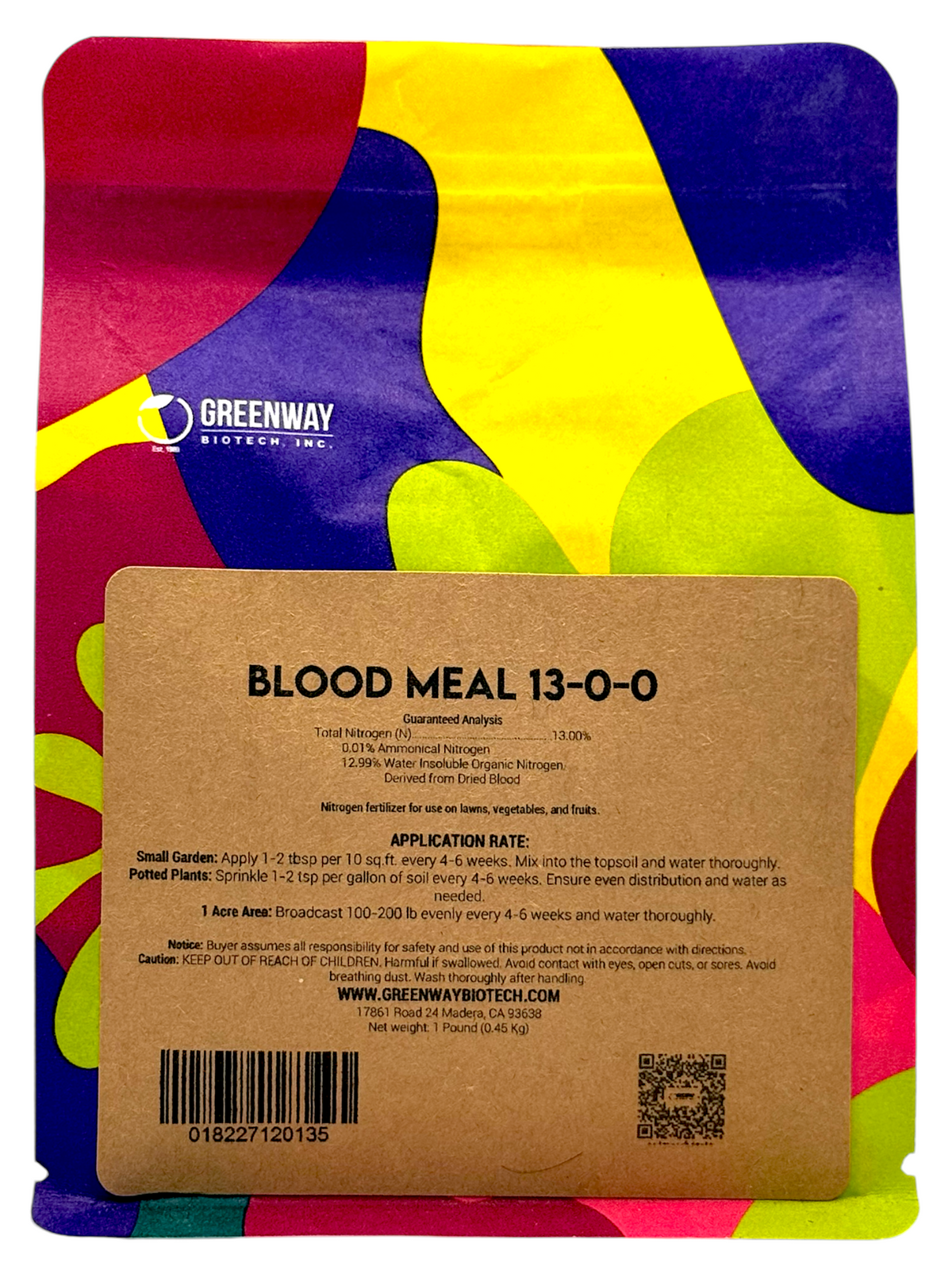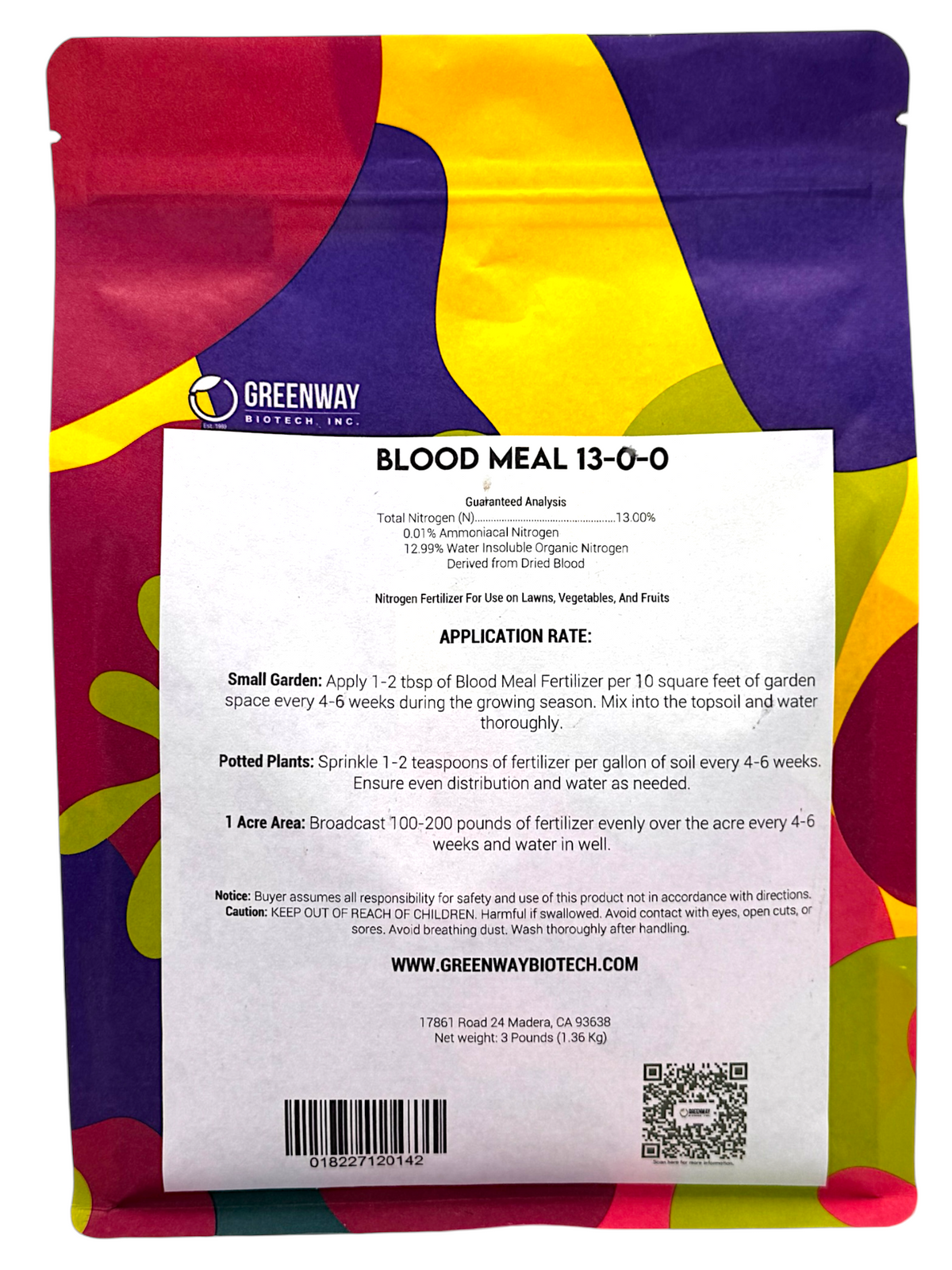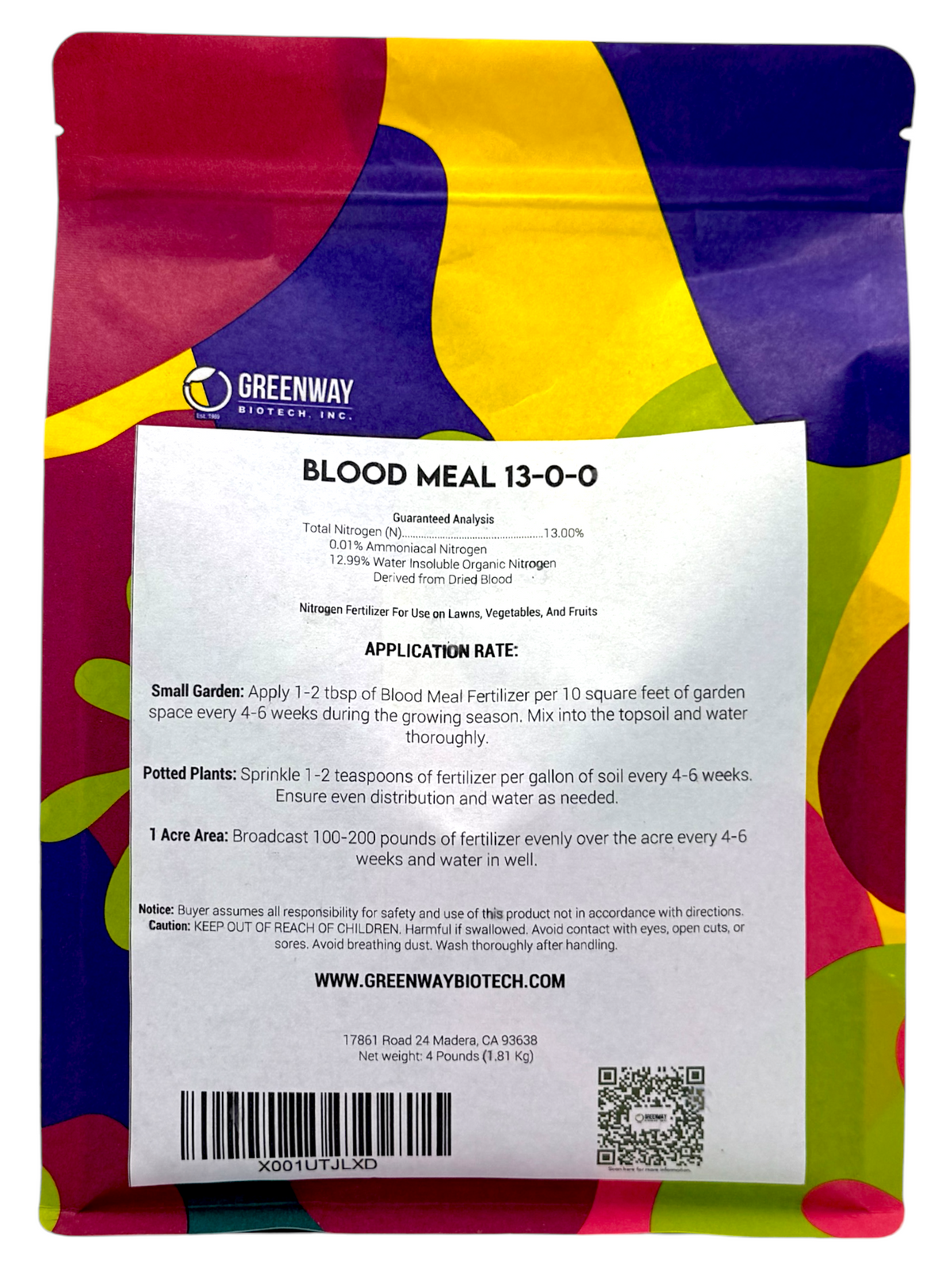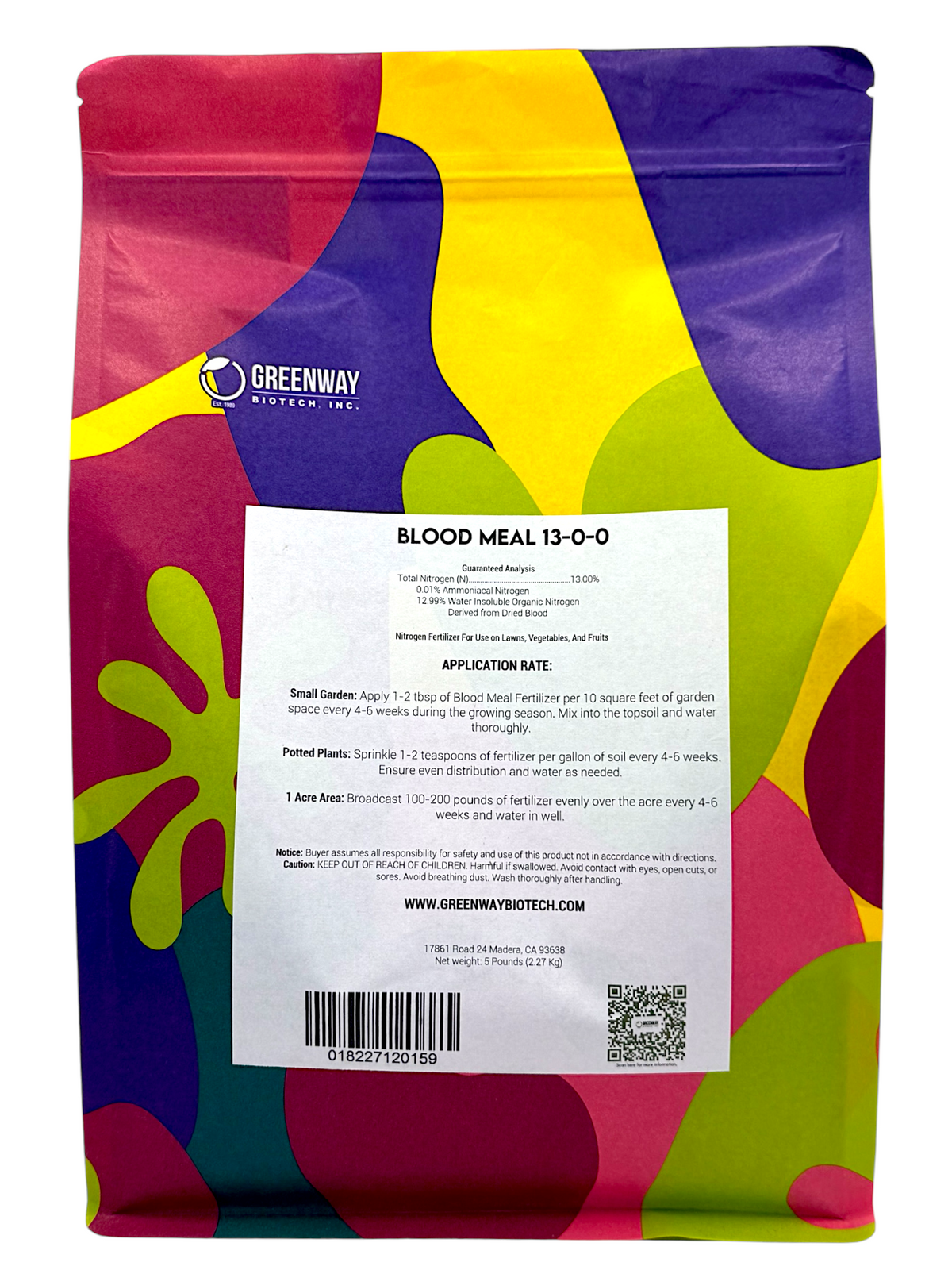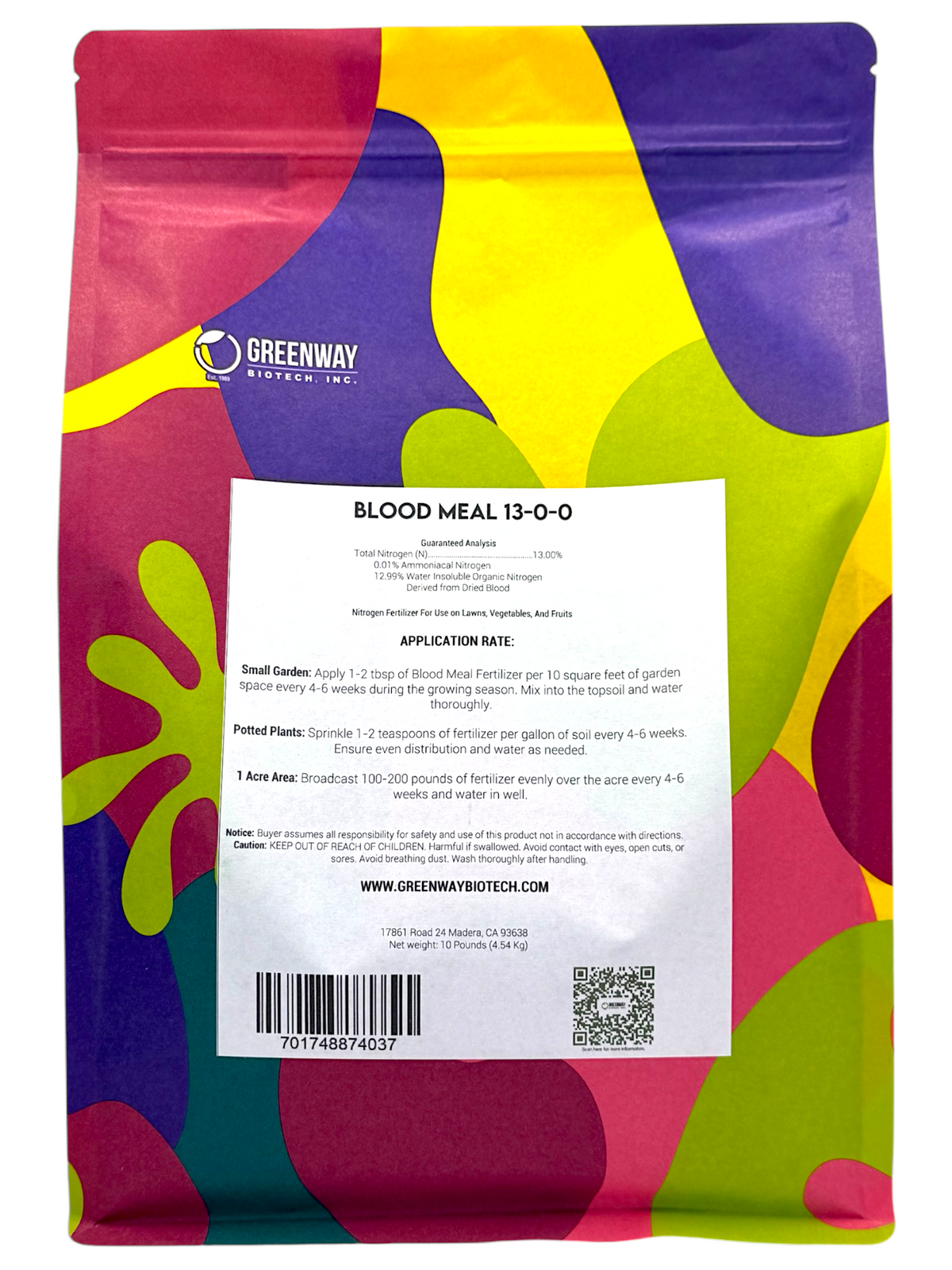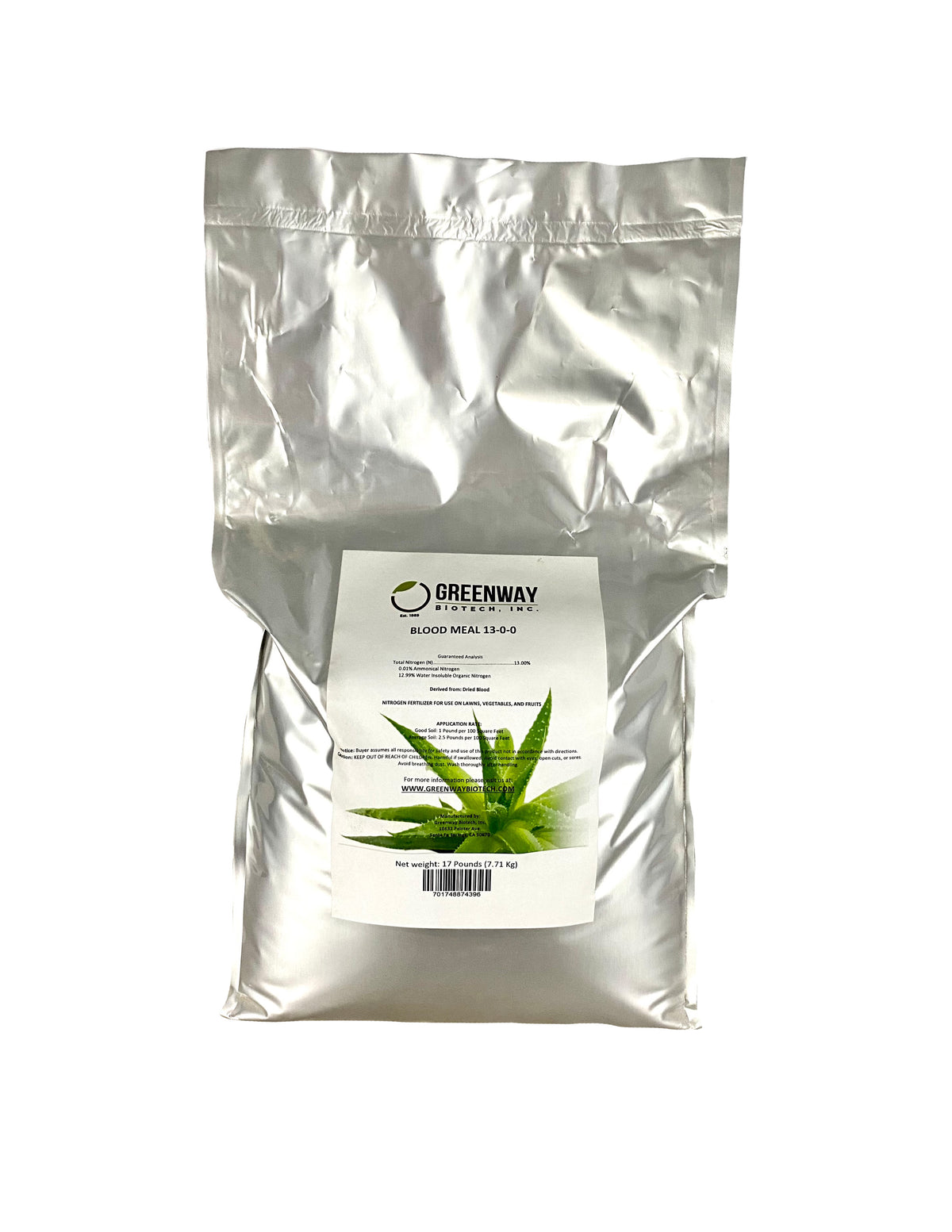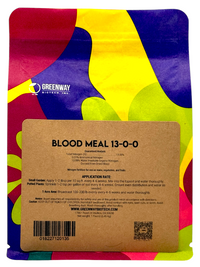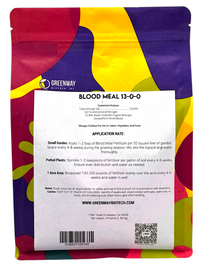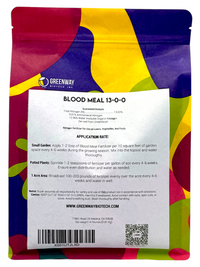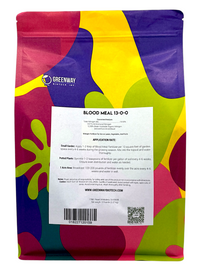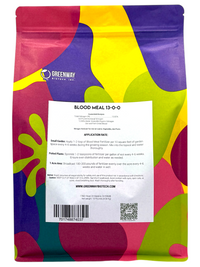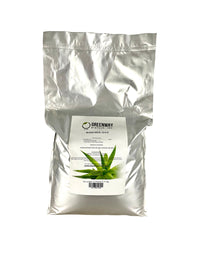Organic Blood Meal Fertilizer 13-0-0
- Regular Price
- $ 19.99
- Sale Price
- $ 19.99
- Regular Price
- $ 19.99
- Unit Price
- per
Organic Blood Meal Fertilizer 13-0-0
Premium Organic High-Nitrogen Fertilizer for Vegetables, Flowers, Shrubs, and Trees
Introducing our premium Bovine Blood Meal Fertilizer, a highly effective organic fertilizer derived from the dried and powdered blood of cattle. With its rich nitrogen content and essential nutrients, this fertilizer is your key to unlocking vibrant growth and lush foliage in your garden.
What sets our blood meal fertilizer apart is its exceptional concentration of organic nitrogen. With an N-P-K ratio of 13-0-0, it provides a significant boost to your plants' growth and development. This natural, slow-release formula ensures a steady supply of nutrients, promoting healthy leaf growth, strong stems, and overall plant vitality.
Our Blood Meal Fertilizer is not just about feeding your plants; it's about nurturing your soil ecosystem. As an organic product, it contributes to improving soil structure and enhancing microbial activity. This means you're not just growing plants; you're building a healthier, more sustainable garden from the ground up.
Whether you're an experienced gardener or just starting out, our Blood Meal Fertilizer is your trusted ally in achieving a thriving, productive garden. It's particularly beneficial for nitrogen-hungry plants like leafy greens and corn, but versatile enough for use across a wide range of vegetables, flowers, shrubs, and trees.
Choose our Blood Meal Fertilizer for a natural, sustainable, and effective way to nourish your plants and soil. Experience the difference that organic, high-nitrogen fertilization can make in your garden's health and productivity.
Why Choose Our Blood Meal Fertilizer?
- High Nitrogen Content: With 13% nitrogen, it provides a significant boost to plants' growth, protein formation, and chlorophyll production.
- Organic and Sustainable: Derived from a natural byproduct of the meat industry, making it an eco-friendly fertilizer option.
- Slow Release Formula: Provides a consistent and long-lasting source of nutrition, minimizing the risk of nitrogen leaching.
- Improves Soil Quality: Enhances soil structure, microbial activity, and the soil's ability to retain moisture and nutrients.
- Versatile Application: Suitable for a wide range of plants, including vegetables, flowers, shrubs, and trees.
- Safe and Non-Burning: When used as directed, it won't cause nitrogen burn, allowing for precise nutrient management.
- Ideal for Organic Gardening: Aligns with organic farming principles, perfect for environmentally conscious gardeners.
Application Rates
| Application Type | Area/Plant Type | Application Rate | Frequency |
|---|---|---|---|
| General Garden Beds | Per 100 square feet | 2-4 pounds | Every 4-6 weeks |
| Vegetable Gardens | Per Plant | 1-2 tablespoons | Every 4-6 weeks |
| Flower Beds | Per Plant | 1-2 tablespoons | Every 4-6 weeks |
| Trees and Shrubs | Per Plant | 1-2 cups | 2-3 times per year |
| Container Plants | Per Gallon of Soil | 1-2 teaspoons | Every 4-6 weeks |
| Large Scale (e.g., 1 Acre) | Per Acre | 100-200 pounds | As needed (based on soil test) |
Derived From
Our Blood Meal Fertilizer 13-0-0 is derived from:
- Dried and powdered bovine blood
Customer Success Stories
"Perfect product for my organic garden. I use it for my tomatoes and peppers. I mix it in the soil before planting and then side dress during the growing season. My plants are always healthy and produce abundantly."
- Barbara T.
"Great fertilizer. I have used blood meal for years. It's a great source of nitrogen and an important component of organic gardening. I use it for all my vegetables."
- Mike P.
Grow with Confidence
Our Blood Meal Fertilizer is designed to give you peace of mind and exceptional results. Explore the following features that set our product apart:
Product Quality Guaranteed
- All our products are manufactured in California, USA
- Tested by independent third-party laboratories for quality assurance
- Registered with the California Department of Food and Agriculture (CDFA)
- Rigorously tested to ensure products are free from heavy metals
Hassle-Free Return Policy
We stand behind the quality of our Blood Meal Fertilizer. If you're not completely satisfied with your purchase, we offer a 30-day money-back guarantee. Simply return the unused portion of the product in its original packaging, and we'll process a full refund, no questions asked.
Environmental Responsibility
At Greenway Biotech, we're committed to sustainable practices:
- Our packaging is made from biodegradable materials
- After use, you can leave the packaging in your garden or compost, where it will naturally degrade
- We source our raw materials from reputable companies and countries
- Precise nutrient formulation to minimize runoff and environmental impact
- Support for sustainable farming practices
- Ongoing research into organic and environmentally friendly fertilizer solutions
Charitable Contributions
At Greenway Biotech, we believe in giving back to our community and supporting education for children:
- 1% of all profits from our product sales go to the Greenway Foundation
- The Greenway Foundation is dedicated to helping children's education
- Your purchase contributes directly to improving educational opportunities for children
For more information about the Greenway Foundation and its initiatives, please visit greenway.foundation.
Discover More Garden Wisdom
- What's the Function of Nitrogen in Plants?
- Rodent Roundup: Natural Solutions for Keeping Critters Out of Your Garden
Have Questions?
Check out our Frequently Asked Questions about Blood Meal Fertilizer or contact our gardening experts for personalized advice.
